SP2019: Keynote Speakers
Dr Don McLean - Founder & MD of IES
“Making communities sustainable - a manifesto for saving the planet”
Teaser: With the new digital twin technology we can now apply sustainable analysis to communities of any size or purpose, enabling people to look at energy use holistically at a much larger scale. To do this successfully we need leaders who can lead their community and evolve these smart concepts into truly intelligent solutions which will have a measurable and lasting impact upon climate change. If each leader looks after their built environment footprint, in time, we can cover the Earth.
Short Bio: Don is the Founder and MD of Integrated Environmental Solutions (IES). He is passionate about making buildings and cities more energy efficient to help preserve earth’s natural resources for future generations, and has dedicated the last 40 years of his life to pioneering and developing performance simulation tools that significantly improve the building design process. In the last decade Don has invested heavily in research and development, constantly pushing the boundaries of building performance analysis and promoting integrated working partnerships to create more sustainable communities and cities. His vision and leadership has been the driving force behind the success of IES, seeing the company grow from humble beginnings to a successful and key global player in the field of sustainable building design and operation.
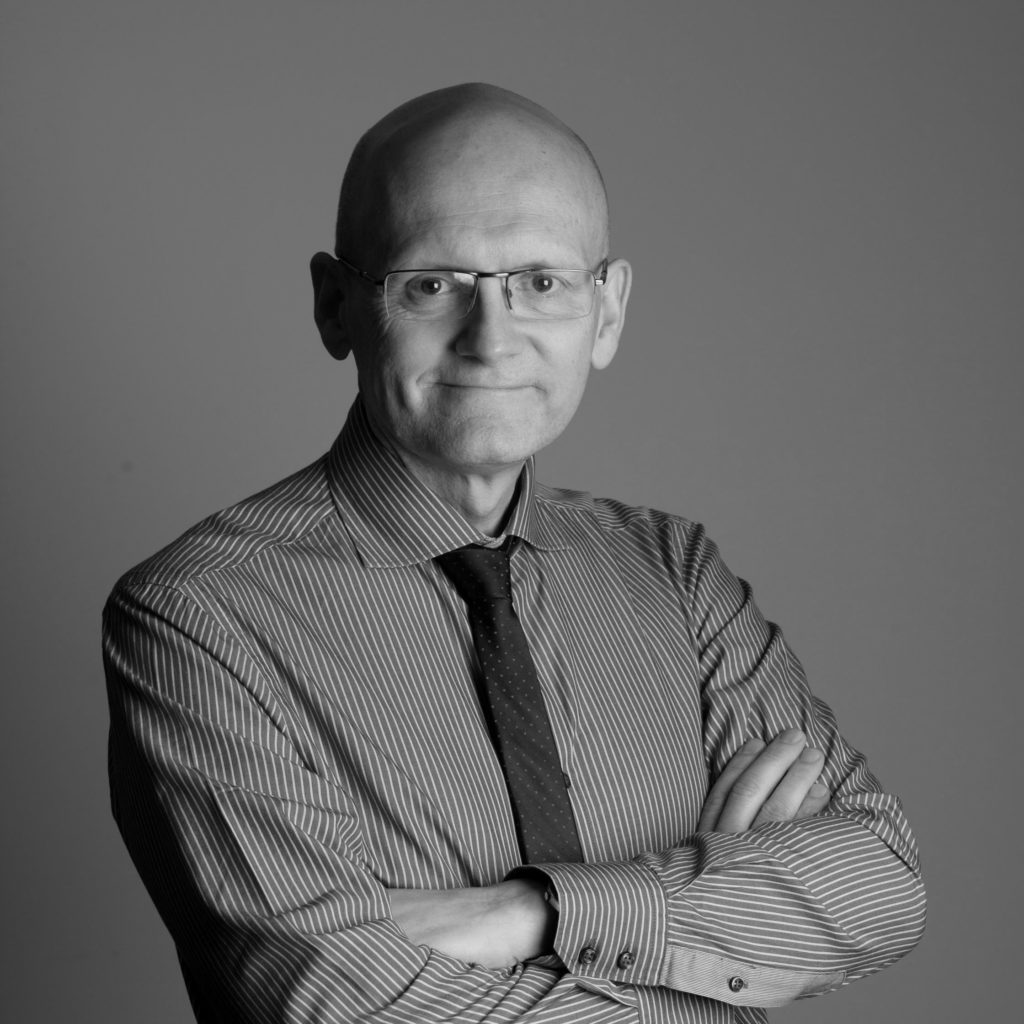
Dr Karim Selouane - Founder & CEO of Resallience
“How to make Infrastructures and Cities Relient towards Climate Change”
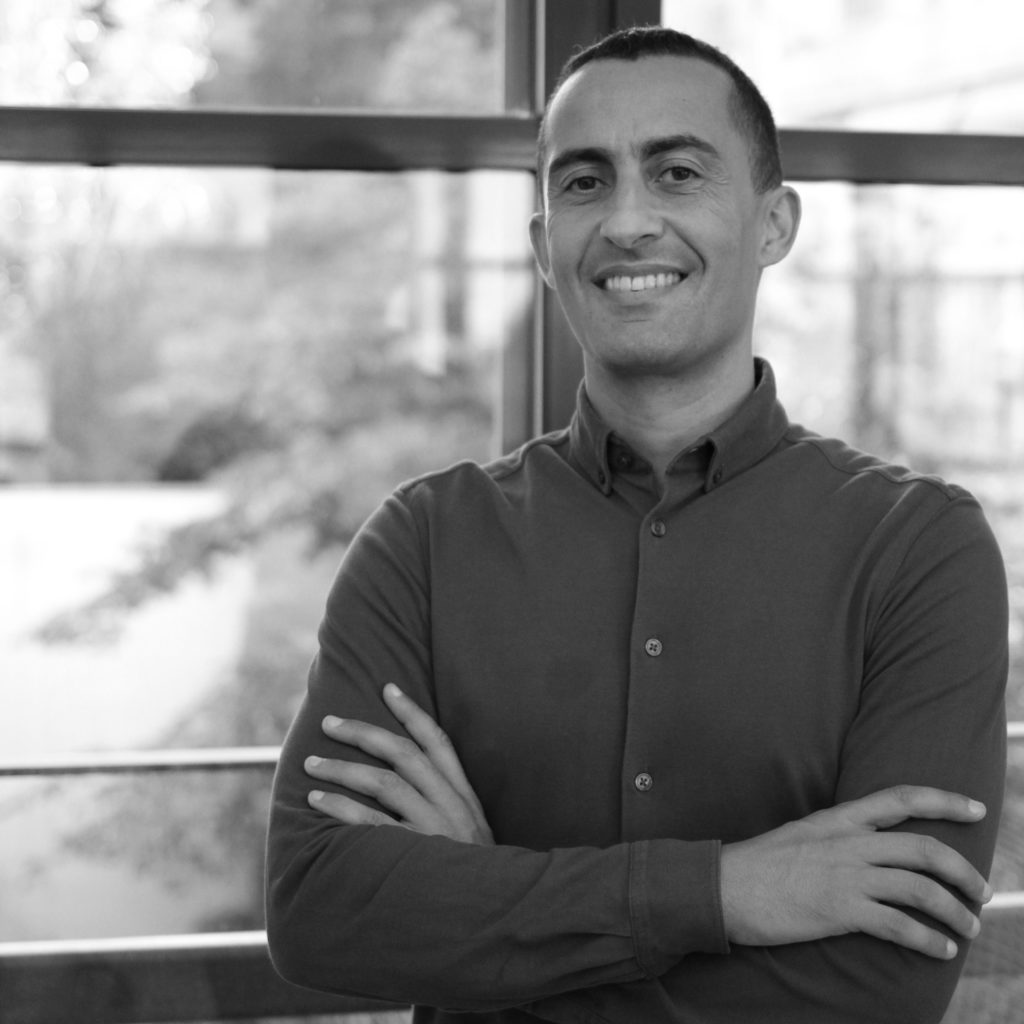
Teaser: In emerging economies, climate change threatens the development role of infrastructures. Climate change is affecting all types of large-scale projects such as energy, transport, water and more generally buildings. Rising temperatures, increasing flood risks, and other climate hazards are already stressing reliable and efficient operations of these networks leading to large economic and social impacts. As such, the public and private sector, investors, and civil society must now address climate change risks and uncertainty when planning, building and operating infrastructure projects. By adopting a resiliency lens via a technical action framework which covers insurance, normalization and finance, stakeholders can implement tools and methodologies that lead to improved design, site selection and operations of infrastructures to increase the resilience of our cities and the infrastructures that support them.
Short Bio: Karim SELOUANE has over 15 years of experience spanning both industry, academia, and support to policy makers regarding strategies for the management of climate risks to territories, cities and projects. He is the head of resilience and climate change adaption at Vinci Construction and in 2018 resultant from selection within Vinci’s LEONARD Innovation and Foresight Platform, he founded and is now CEO of RESALLIENCE, a design office dedicated to adapting cities, territories, infrastructures and their use to climate change. Karim is a member of the sustainable city working group of the UN Habitat (PNUE) and participated and contributed to the first cities summit in Nairobi (March 2019). Karim is also a member of the “Community of users on secure, safe and resilient societies : urban critical infrastructures” from European Union.
Andrea Raimondi - Business Developer Energy Efficiency for Legrand Group
“Legrand Group: the strong engagement in Energy Efficiency”
Teaser: Legrand Group, represented in Italy by Bticino, is the global specialist in electrical and digital infrastructures, offering high-value-added products and solutions for commercial, residential and industrial buildings.
Its technological expertise, its leading positions, the scope of its offering, its international presence and the power of its brands combine to make Legrand a global benchmark. With a presence in nearly 90 countries and a workforce of over 38,000 employees, Legrand generated total sales of close to €6.0 billion in 2018.
Directly integrated in the Group’s activity, Corporate Social Responsibility is an essential ingredient in Legrand’s growth. Situated at the crossroads between its business, its strategy, and the global challenges the Group faces, it involves the whole organisation; all the subsidiaries and entities are stakeholders in this CSR strategy, which they implement all over the world. One of the 3 pillars of the CSR strategy is the ENVIRONMENTS or how Legrand Group intends to limit the Group’s environmental impact.
Short Bio: Andrea Raimondi, born in 1983, graduated in Automation Engineering from the Polytechnic of Milan. He began his career with Bticino – Legrand group – as assistant Product Manager for industrial circuit breakers. The increasingly strong need for the supervision market applied to electrical distribution panel boards has led it to follow measurement and control systems.
Following the acquisition by Bticino of Metasystem Energy, he moved to Reggio Emilia as single-phase UPS Marketing Manager. He led the development of the offer that allowed the Legrand group, in less than 7 years, to enter and establish itself among the top global players in the UPS market.
In 2017, he left Reggio Emilia and assumed the role of Business Developer Energy Efficiency for the entire Legrand group. It operates worldwide and supports the more than 80 branches of the group to develop business models capable of exploiting this very important theme that drives more and more project choices and not only.
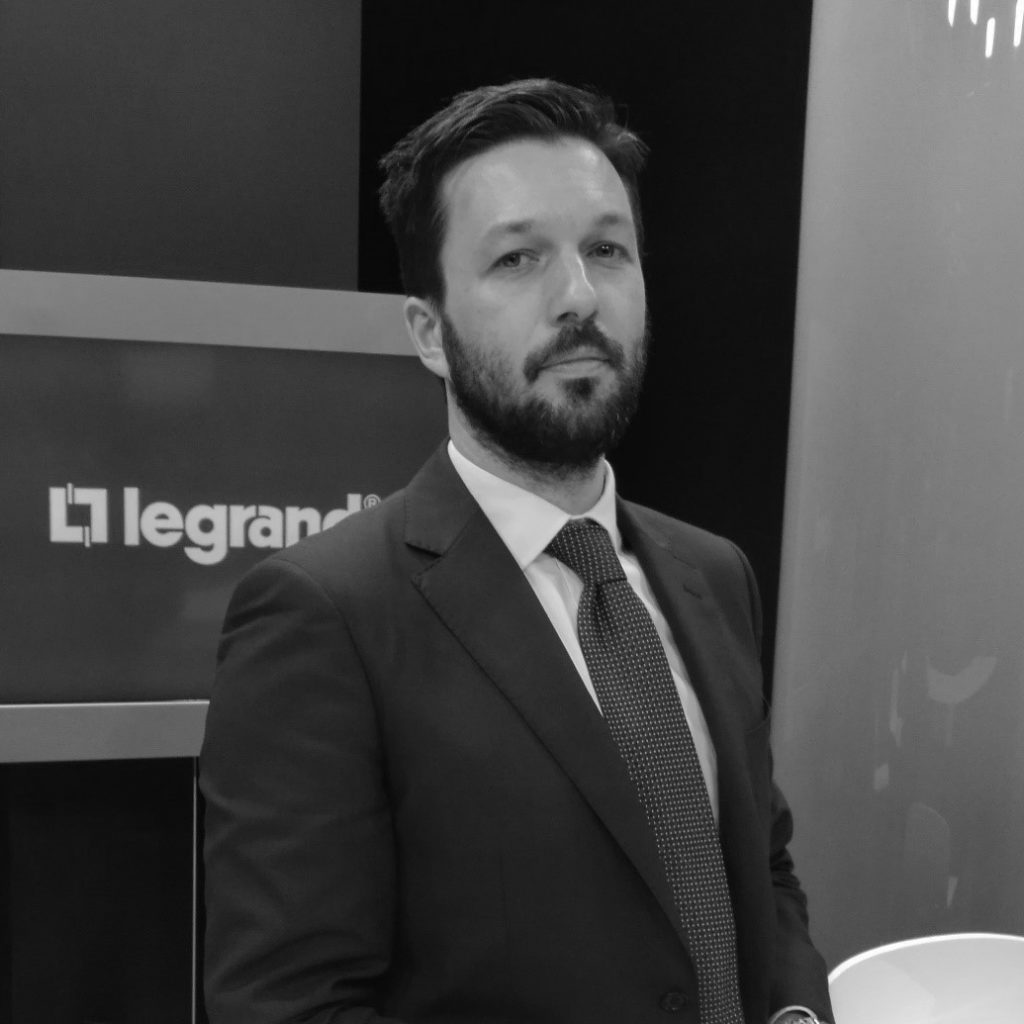
Ing. Raffaele Cosenza - Energy Manager Banco di Sardegna
“Switch- Off project : energy efficiency for Banco di Sardegna buildings”
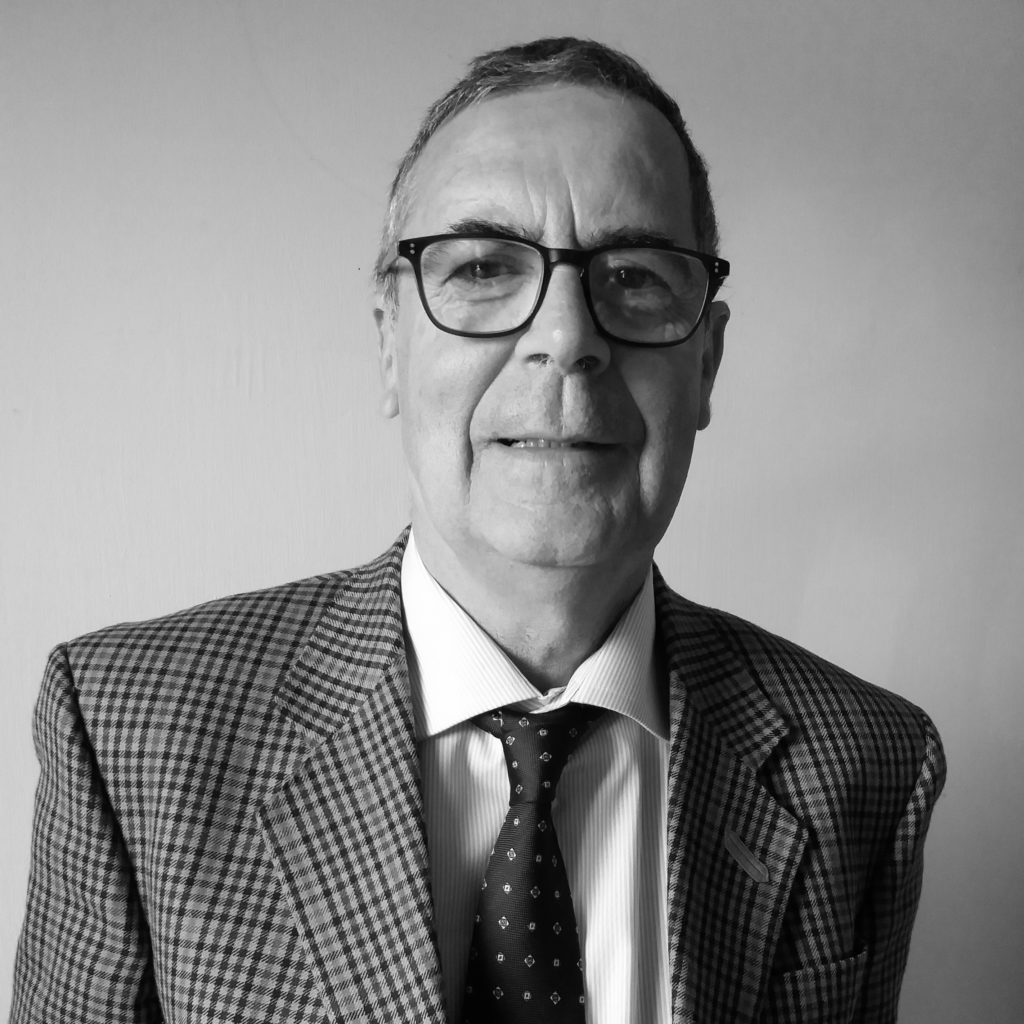
Teaser: The Switch – Off project for improved energy efficiency for the Banco di Sardegna was conceived in 2014 to deal effectively with the need to reduce costs, save energy and optimize consumption.
The goal was to explore the numerous opportunities related to low implementation costs, which would guarantee promising results both in terms of systems management and staff involvement.
Through the installation in over 150 sites of adequate software and equipment for measuring and controlling the main electrical loads in the most energy-intensive branches of the Banco di Sardegna, it was possible, remotely via the web, to monitor and optimize the global energy consumption, both electric and thermal. The results achieved in the 2015-18 three-year period have allowed savings of over 9,000 MWh with a consequent reduction of approximately 4,800 tons of CO2 emissions into the atmosphere.
Short Bio:For over 40 years Raffaele has been involved in the design of systems, both electrical and air-conditioning, in the Banco di Sardegna, always seeking high performance solutions with low energy consumption. Since 2013 he has been the Energy Manager of the Banco di Sardegna. In this role he initiated a series of energy efficiency projects involving all the branches and buildings of the Bank and at the same time, promoted various sustainable awareness campaigns to involve and inform the personnel. The principal objective was to reduce the specific energy requirements and limit the environmental impact of energy consumption, in order to safeguard the environment for future generations.
Margot Pinault Policy Officer, European Commission, Directorate General for Energy, Unit C.3- Energy Efficiency, Buildings and Finance Team
“Accelerating the transition to clean energy and sustainable buidings- the EU policy and funding”
Teaser:The presentation will recall the EU Climate and Energy policy objectives for 2030 and the EU long-term decarbonisation strategy scenarios. It will further develop on the EU legislative framework to achieve these objectives. Finally it will go through the Commission proposals for the next Multiannual Financial Framework programmes adopted last year, with the specific focus on the support to energy transition and buildigns sustainability.
Short Bio: Margot holds a Masters in Economics and a Masters in European and International Business. She has 7 years of experience in the private sector in France in the field of energy management systems for buildings. Margot now has 7 years of experience at the Commission, and is in charge of defining funding priorities for energy efficiency under Horizon 2020 and their continuation under LIFE and Horizon Europe.
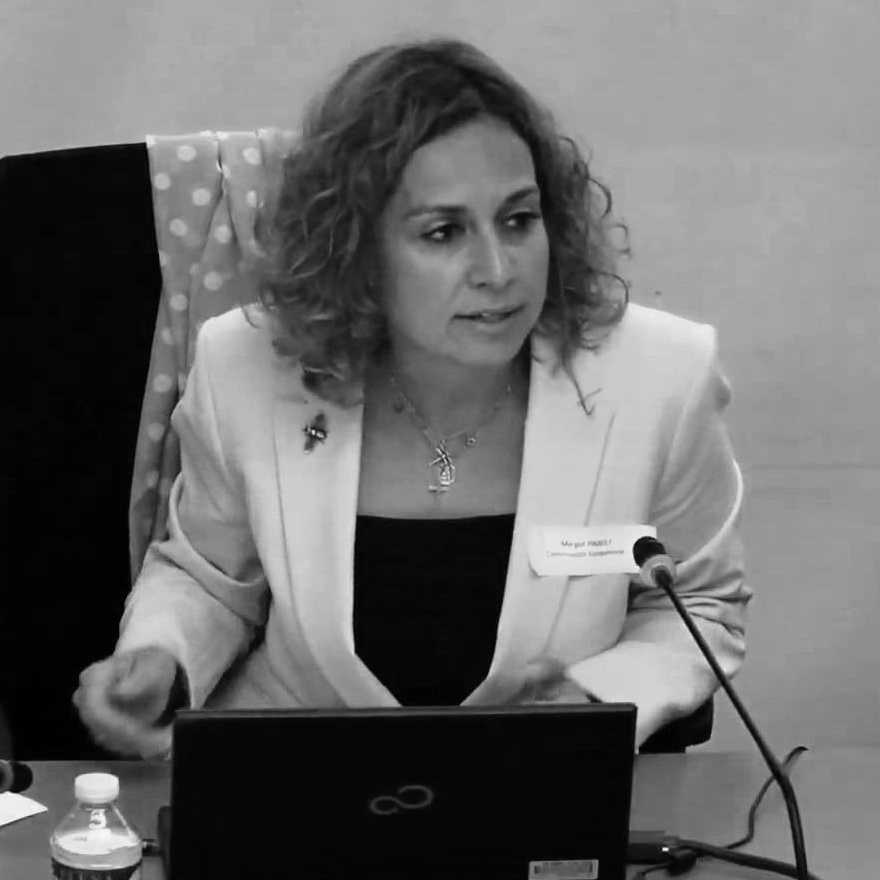
Audrey Nugent
Head of Advocacy
World Green Building Council
“Green Building Councils – Putting a sustainable built environment at the heart of Europe's future”

Teaser: Collectively, Green building councils make up the largest sustainability organization worldwide. We are present in over 70 countries and have over 49,000 members. Together, we work toward a more sustainable built environment through a series of actions that include the shaping and implementation of sustainability protocols, training to professionals, advocacy, the organizations of events and the networking of organizations and professionals dedicated to sustainability. This talk will discuss the role of GBC in Europe and beyond and share our thoughts and observations on the trends impacting the sector as we move beyond buildings and toward sustainable places in the digital age that are more energy efficient, that promote wellness, and that are more circular. We invite you to join GBC and join the movement.
Short Bio: Audrey Nugent is Head of Advocacy at the World Green Building Council, advising on sustainable buildings policy for the Europe Regional Network (ERN) of over 23 national Green Building Councils (GBCs).
In particular, Audrey’s work focuses on Build Upon, the world’s largest collaborative project on building renovation which was funded through the EU Horizon 2020 project and which now continues in Build Upon 2. Audrey also leads on the ERN’s position work on Level(s), the EU’s Sustainable Buildings Framework for building circularity is working with the ERN to discuss how GBCs can support the implementation of Level(s) at a national level.
Audrey has a Masters in urban planning. She previously worked for a trade body advising chemical companies on policy and regulatory changes that impact their business and facilitating discussion between these companies and government. She has also worked for a London local authority ensuring its compliance with UK energy policy, in particular, the Carbon Reduction Commitment (CRC).
Annalisa Bonfiglio President CRS4 – Centro Ricerche, Sviluppo, Studi Superiori in Sardegna
"From the Smart City to the Smart Island: life-improving projects based on digital technologies"
Teaser: Since more than 25 yrs, CRS4 has been involved in several research projects focused on digital technologies applied to biosciences, energy, environmental sciences, cultural heritage, human interactions, etc. More recently, these research efforts have been focused on the development of technological projects for the smart city of Cagliari, trying to take into account the complexity deriving from applying digital technologies to the typical processes of a medium-size, ancient, Italian city, located in an island just in the middle of the Mediterranean Sea. The next challenge is to extend this approach to the entire island of Sardinia, trying to make a successful matching between technology and socio-economical aspects of the territory.
Short Bio: Annalisa Bonfiglio is President of CRS4 since 2017. She graduated in Physics in 1991 at the University of Genova, Italy and got the PhD in Bioengineering in 1996 at the Politechnical School in Milan.
She is also Full Professor of Electronic Bioengineering at the University of Cagliari and has been the coordinator of the course of Biomedical Engineering at the same University from 2012 to 2017. She also belongs to the Board of Professors of the PhD School in Bioengineering and Robotics of the University of Genova, Italy. She authored more than 130 papers on international journals, conference proceedings, book chapters. She also holds 11 patents. Her research activity is focussed on innovative materials (in particular organic semiconductors) and devices for wearable electronics and biomonitoring. She is also involved in several national and international research projects and is evaluator of research projects for several international organizations (as, for instance, European Commission, V, VI, VII FPs, Horizon2020 and European Research Council; the French Agence Nationale de la Recherche , the US-Israel Bi-National Science Foundation).
From 2015 to 2017 she was Vice-Rector for Innovation and Territorial Strategies of the University of Cagliari.
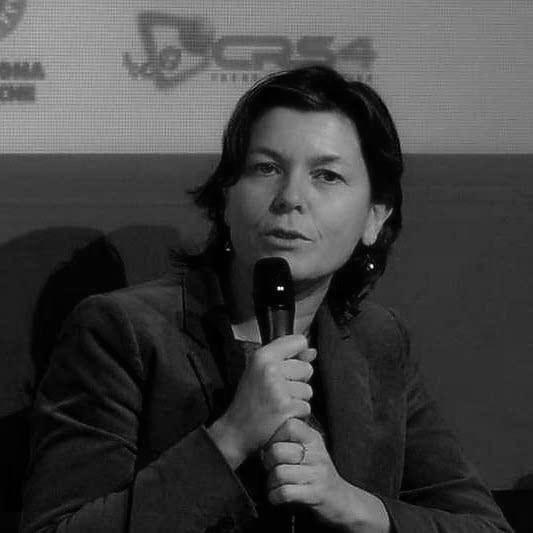
Eng. Niccolò Elia Sovico & Sergio Pedolazzi
Founders and Management Team of Ener2Crowd
“Crowdsourcing Sustainable Places”
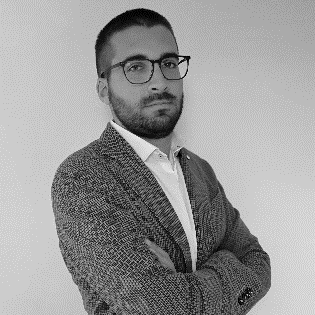
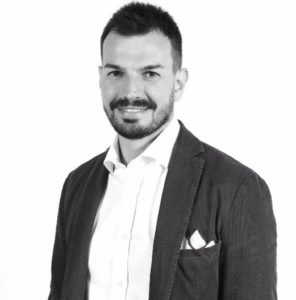
Teaser: Financing should not be the barrier that blocks our ambitions toward meeting the sustainable development goals and our energy and emissions targets. Moreover, we believe the “average people” want to get involved, care and are willing to make a difference. For that reason, we founded and launched ENER2CROWD, a crowdsourcing platform dedicated to sustainability projects. Although new today, we believe crowdsourcing will be mainstream tomorrow. In this keynote, we’ll tell you our ambitions for ENER2CROWD will disrupt the sustainability financing landscape and empower everyone to take an active role in the energy transition towards a completely green economy.
Short Bio:
Niccolò Elia Sovico graduated in Nuclear and Energy Engineering at the Polytechnic of Turin after a long experience at the University of Illinois at Chicago. He has always worked in the family business related to the trade and constructions but after the graduation he got involved in an Energy Service Company in Milan. He has been project manager of Energy Performance Contracts for Large Industries where he understood the importance of sharing the economical and environmental benefits of energy saving projects. In order to do that Niccolò co-founded Ener2Crowd, the first Italian lending crowdfunding platform for energy saving and renewable energy projects.
Sergio Pedolazzi graduated in Civil Engineering at the University of Pavia after which he started working as a technical engineer in a multinational company involved in the promotion and production of sustainable materials and construction systems for green building. In the meantime his passion for innovation and technology allowed him to start his career as an entrepreneur, founding his first startup in product design which gave him the opportunity to discover Crowdfunding, the crowd-economy and the business strategies behind this new way of fundraising. In 2018 he co-founded Ener2crowd.
